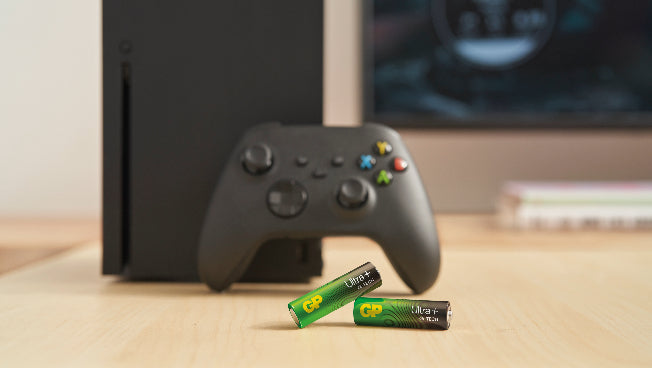

Are you unknowingly harming your batteries? Unravel the mysteries surrounding battery care and discover the truth behind common myths as you find out why constant charging, full discharges, refrigeration, and powering off devices might not be the best strategies to extend your battery's lifespan. Get ready to unlock the secrets to longer-lasting batteries with us in this article!
- Myth 1: "Constantly charging your batteries when not in use will prevent power loss."
- Myth 2: "Fully discharging batteries before recharging improves their lifespan."
- Myth 3: "All batteries should be stored in the refrigerator for longer life."
- Myth 4: "Simply powering off the device while the battery is inside will help save power."
When it comes to batteries, there are plenty of myths and misconceptions floating around that can lead us down the wrong path. These myths can often sound very convincing too, leaving us confused about how to properly take care of our battery’s health in order to extend our battery’s lifespan. These misunderstandings often leave us confused about how to properly use and take care of our batteries. To ensure you get the most out of your batteries and avoid any unnecessary headaches, it's essential to separate fact from fiction. In this article, we're going to debunk the top four battery myths that you should stop believing. Let's dive in and uncover the truth behind these common battery myths, so you can truly harness the power of your batteries.
 Myth 1: "Constantly charging your batteries when not in use will prevent power loss."
Myth 1: "Constantly charging your batteries when not in use will prevent power loss."
Many people believe that keeping rechargeable batteries constantly plugged in or charging them even when not in use will prevent power loss. However, this charging myth is one of the most prevalent misconceptions. In reality, batteries that are left plugged in all the time can experience wear and tear due to overheating, hence if you’re wondering how else you can extend your battery’s lifespan, leaving it plugged in all the time is the one thing you shouldn’t do. It's important to disconnect the charger once the battery is fully charged to avoid unnecessary strain on the battery.
 Myth 2: "Fully discharging batteries before recharging improves their lifespan."
Myth 2: "Fully discharging batteries before recharging improves their lifespan."
In the past, fully discharging batteries before recharging was recommended for certain types of batteries. However, modern batteries, such as lithium-ion batteries commonly found in smartphones and laptops, have different charging requirements. Frequent deep discharges can actually reduce the lifespan of lithium-ion batteries. If you’re wondering how to remedy this and take better care of your battery’s health, we recommend performing partial charging instead, where you recharge the battery when it reaches around 20-30% capacity. The same applies to rechargeable batteries as well, so the next time you’re thinking about draining your rechargeable battery entirely before recharging it — don’t! The good news is that with our ReCyko batteries, you’re looking at a much lower self-discharge rate than your average battery, which means longer periods between charging times and a lower carbon footprint as well.
 Myth 3: "All batteries should be stored in the refrigerator for longer life."
Myth 3: "All batteries should be stored in the refrigerator for longer life."
Storing batteries in the refrigerator was once an unusual myth that had people placing their overheating devices and even unused batteries in the fridge. Of course, the sage advice of keeping your batteries cool still holds true, but keeping it in a refrigerator is definitely not how you should be taking care of your batteries. Refrigeration is not necessary for most battery types and can actually be detrimental as extreme cold temperatures can negatively impact battery performance. Instead, it is best to store batteries in a cool, dry place away from direct sunlight and extreme temperature even though our batteries are equipped to handle extreme temperatures of -20 °C to +50 °C.
 Myth 4: "Simply powering off the device while the battery is inside will help save power."
Myth 4: "Simply powering off the device while the battery is inside will help save power."
While it is generally true that powering off a device helps save battery power, it's important to note that batteries still experience self-discharge even when the device is turned off. This means that over time, the battery will naturally lose its charge while in contact with the device's contact points. To maintain optimal battery performance, it is recommended to remove the battery when the device is not in use for an extended period. Additionally, regular top-up charging can help keep the battery at an optimal level.
In conclusion, debunking battery myths is essential for maximising battery performance and lifespan. By understanding the truth behind common misconceptions such as constant charging, full discharges, refrigeration, and simply powering off devices, you can make informed decisions to care for your batteries. Remember to disconnect chargers, perform partial charging, store batteries in a cool, dry place, and remove them when not in use for extended periods. With this newfound knowledge, you can extend your battery's life and optimise its power.
Now that you know the truth behind these four battery myths, it's time to start treating your batteries better to extend their lifespan. While we're on the topic, check out our article on How to Extend the Life of Your Everyday Batteries to get a better understanding of how to keep your batteries in peak condition. If you're just discovering dead batteries in your drawer, don't fret — check out GP Batteries’ wide range of single-use and rechargeable batteries to replenish your stash today!





